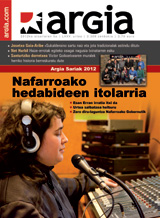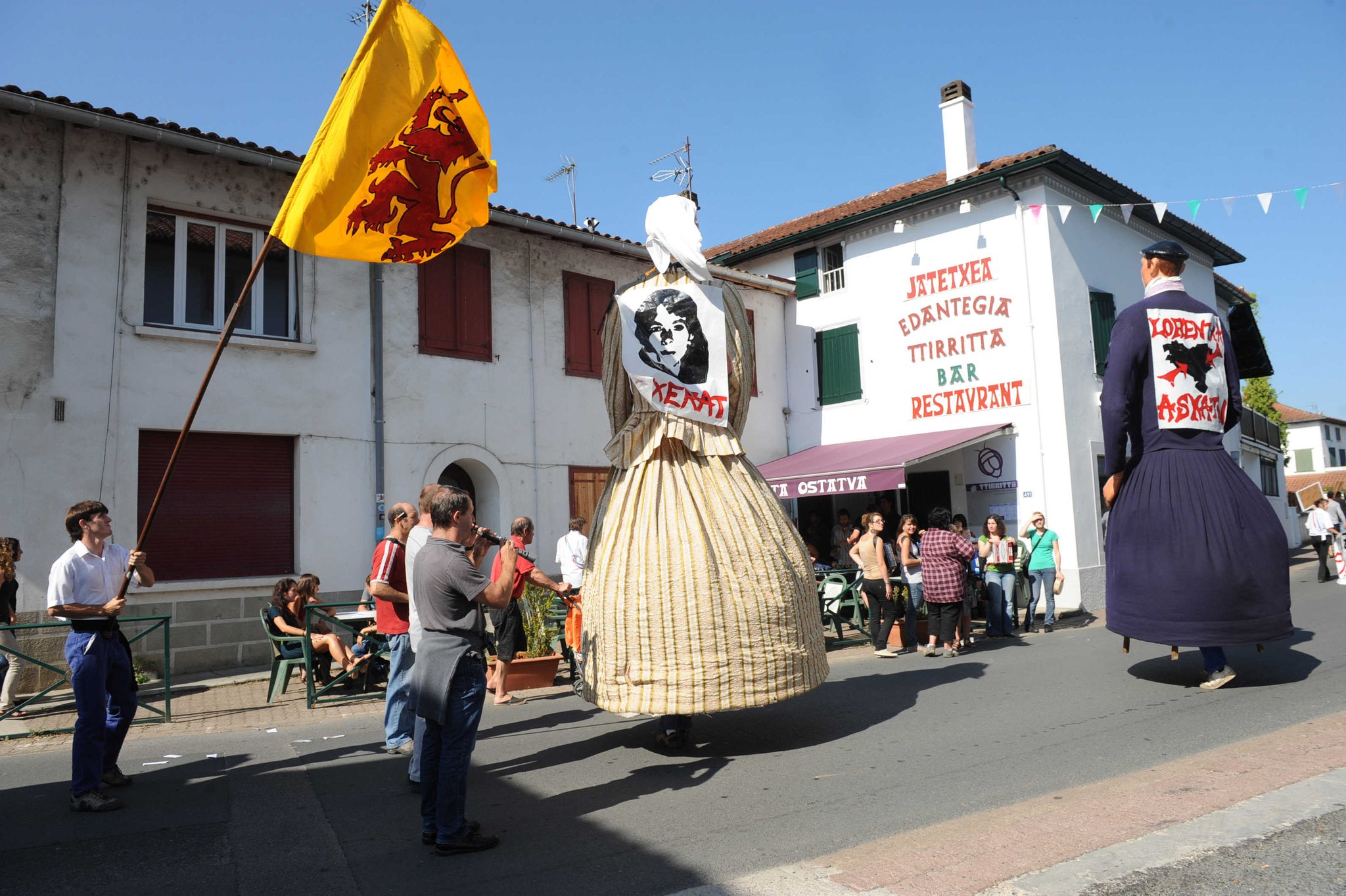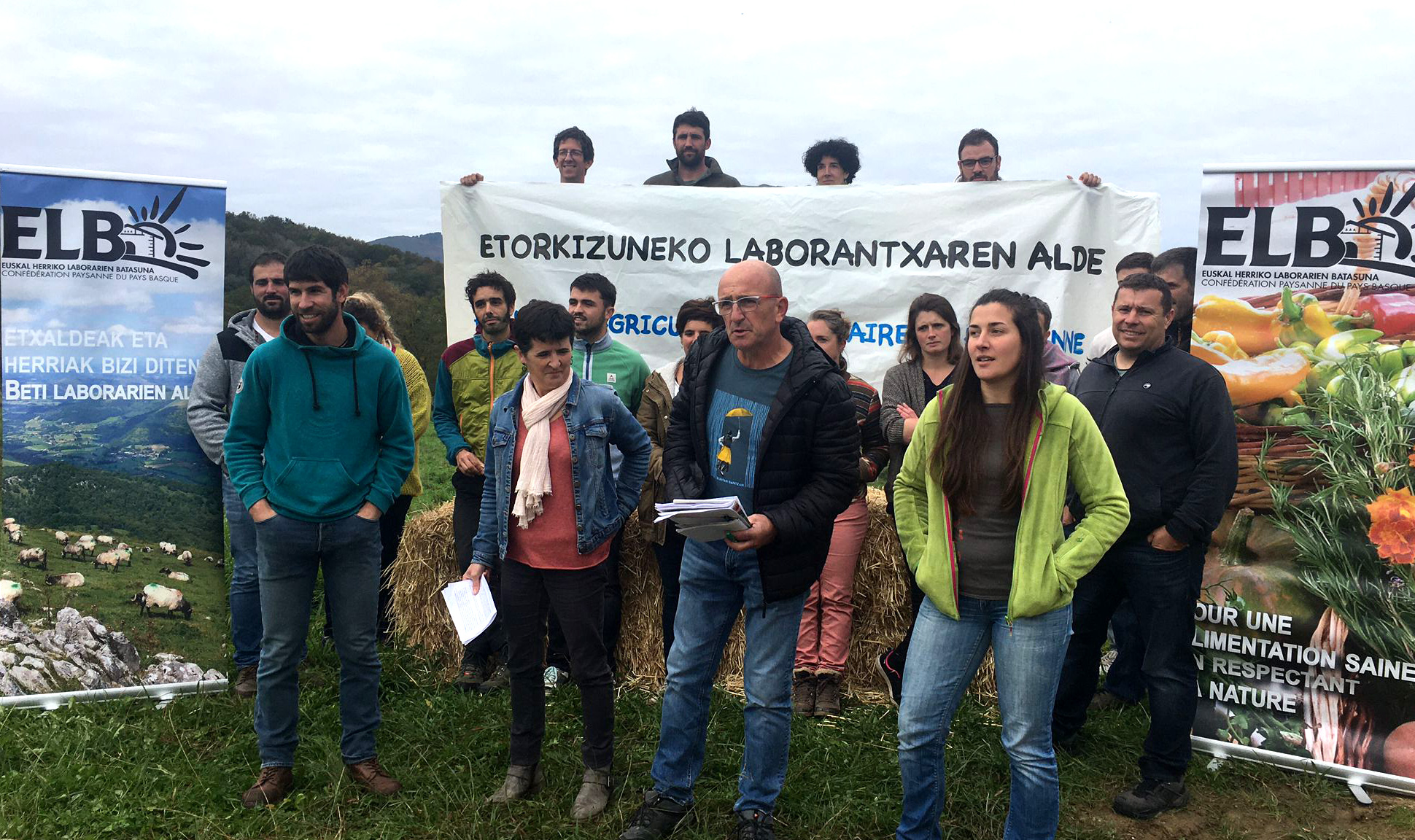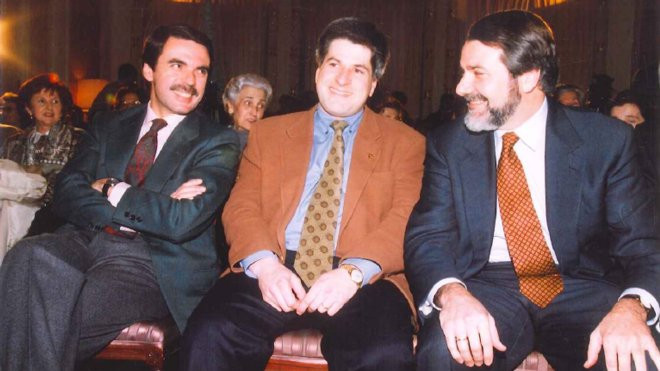Society
Environment
Politics
Economy
Culture
Basque language
Feminism
Education
International
Opinion
saturday 25 january 2025
Automatically translated from Basque, translation may contain errors. More information here. 
An Adventure Story
- Indiano Screenplay:: Gregorio Muro. Illustrations:: Francisco Fructuoso. Alberdania, Erein, Igela. 56 pages. EUR 15.
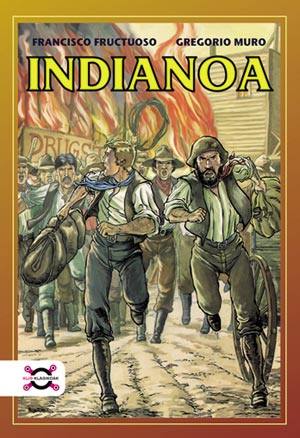
This book is a reissue of the comic book that was published 26 years ago. The text has been adapted by Mitxel Murua and has been edited within the Klis-klasikoak section, promoted by the Galtzagorri association in collaboration with the Vice Ministry of Linguistic Policy of the Basque Government.
“Open portas klis-klas”, from that expression of Arratibel’s stories, in this collection entitled Klis-klasikoak, it is about creating a canon of children’s and youth literature in Euskera, a collection created with the aim of having in the plaza works representative of our literature. In the current market, only the new literature, the novelties are present; and we have many quality books published a few and a half years ago lost. In this sense, it is a satisfaction the work carried out by this series of “Clis-Classicos” to recover these quality works; and, besides the usual topics, in the first four issues that have been edited we find very different books: a story, a collection of short texts from children’s folklore, the translation of an international classic story and a comic book. The latter is the Indiano.Este
comic book set in the middle of the 19th century (history starts in October 1849 on a boat heading to San Francisco) and tells the story of two Basques traveling to California. From the first moment it can be noticed that it is a journey with adventure dyes, because when you land on the boat, the adventures of two of our colleagues begin: they attack on the same boat and capture them, they accuse them of false accusation when landing, then they suffer the betrayal… Julio and Bernardo live many adventures before joining their brother. It is a chain of Western stories, featuring thieves, cattle ranchers, gold seekers and many other characters. The
Basque reader can also be aware of what our ancestors have done in America. The jobs, customs, daily struggles and difficulties they encountered in order to move forward. In this sense, this adventure comic also knows our identity and our history.
In the book's foreword, Muro points out several clues that help to get to know this book better. Here's, for example, R. L. Stevenson's influences, films about the Far West, but also a Basque touch, as mentioned above: the history of the author's family (although the latter appears mostly in the magnificent comics of Justin Hiriart).
Without a doubt, Indiano is a pearl of our literature, a beautiful book that novice readers have had the opportunity to enjoy again, as we previously knew.
“Open portas klis-klas”, from that expression of Arratibel’s stories, in this collection entitled Klis-klasikoak, it is about creating a canon of children’s and youth literature in Euskera, a collection created with the aim of having in the plaza works representative of our literature. In the current market, only the new literature, the novelties are present; and we have many quality books published a few and a half years ago lost. In this sense, it is a satisfaction the work carried out by this series of “Clis-Classicos” to recover these quality works; and, besides the usual topics, in the first four issues that have been edited we find very different books: a story, a collection of short texts from children’s folklore, the translation of an international classic story and a comic book. The latter is the Indiano.Este
comic book set in the middle of the 19th century (history starts in October 1849 on a boat heading to San Francisco) and tells the story of two Basques traveling to California. From the first moment it can be noticed that it is a journey with adventure dyes, because when you land on the boat, the adventures of two of our colleagues begin: they attack on the same boat and capture them, they accuse them of false accusation when landing, then they suffer the betrayal… Julio and Bernardo live many adventures before joining their brother. It is a chain of Western stories, featuring thieves, cattle ranchers, gold seekers and many other characters. The
Basque reader can also be aware of what our ancestors have done in America. The jobs, customs, daily struggles and difficulties they encountered in order to move forward. In this sense, this adventure comic also knows our identity and our history.
In the book's foreword, Muro points out several clues that help to get to know this book better. Here's, for example, R. L. Stevenson's influences, films about the Far West, but also a Basque touch, as mentioned above: the history of the author's family (although the latter appears mostly in the magnificent comics of Justin Hiriart).
Without a doubt, Indiano is a pearl of our literature, a beautiful book that novice readers have had the opportunity to enjoy again, as we previously knew.
Most read
Using Matomo
#2
Onintza Irureta Azkune
#3
#4
Jenofa Berhokoirigoin
#5
Newest
2025-01-24
Xabier Letona Biteri
AHT Pause denounces the existence of situations of slavery in the works of the AVE of Navarre
The workers of the fast train that is being built in Navarre denounce that they are in a state of slavery during the press conference of the association AHT Pause in Pamplona.
2025-01-24
Xabier Letona Biteri
The fight between Trump and Democratic prosecutors may hinder the deportation of migrants
John C. from USA Judge Coughenoiur has approved a joint appeal filed by the states of Washington, Arizona, Illinois and Oregon, rejecting Donal Trump’s decree to expel children of non-legal migrants born in the United States.
2025-01-24
Julene Flamarique
Burlada denounces the eviction of a woman victim of gender-based violence and her five children
The Socialist Housing Union explains that the social services have not offered any alternative, even if the person concerned has made more than one request. “Before the law, the aggressor and the institutions” denounce the total helplessness that this woman suffers.
2025-01-24
Onintza Irureta Azkune
“Feminist nationalism is the only option”
Professor and literary critic Júlia Ojeda has come to present the book Màtria o barbàrie (Angle Editorial) at the Casa de las Mujeres in San Sebastián. The 30 Catalan women who have participated in the book propose the construction of the matrix with a focus on nationalist... [+]
2025-01-24
Euskalerria irratia
June Egino (GKS)
"The austerity policies imposed as a result of the wars hit the workers hard"
The Youth Socialist Coordinator is organising a demonstration on Saturday in Pamplona and Bilbao under the slogan ‘Against War and Fascism’.
2025-01-24
Sustatu
News from TeknoTrump: According to the oligarchs, the Stargate AA initiative, and the TikTok extension
Donald Trump’s mandate has begun to impose reactionary policies against anything that could be woke or DEI, and also by announcing technological measures. From the first moment, when he took the oath of office, the presence of the heads of the tech giants on the front line was... [+]
2025-01-24
Gedar
European military spending at the heart of the debate in Davos
NATO Secretary General Mark Rutte agrees with Trump and says that “Europe needs to increase military investment.”
The hiring dossier for the drafting of the HAPO of San Sebastián has excessive language requirements, according to the college of architects
Due to the appeal of the College of Architects, the City Council of San Sebastián rejects the hiring file.
2025-01-24
Jenofa Berhokoirigoin
The Congress of Thieves will not be held this year
It is a decision taken by the organizers in the General Assembly: this year they will not organize a Congress of Thieves in Uztaritz. Insufficient motivation is the reason behind the decision.
2025-01-24
Euskal Irratiak
ELB sindikatuaren zerrendaburu Julen Perez
“Laborarientzako proiektu azkar bat dugu, Euskal Herriari itzulia dena”
Datorren astean Departamenduko Laborantza Ganbarako hauteskundeak ospatuko dira Ipar Euskal Herrian. Frantzia mailako FDSEA eta CR sindikatuez gain, ELB Euskal Herriko Laborarien Batasuna aurkezten da, "euskal laborarien defentsa" bermatzeko.
2025-01-24
Oinharri eskola
Oinharri eskola - Ezagutuz aldatzea, eskolen eragina
MULTIMEDIA - erreportajea
2025-01-23
Xabier Letona Biteri
The assassination of Ordóñez in the context of "Oldázar" and "Alternative democrática"
This Thursday marks the 30th anniversary of the murder of ETA councillor Gregorio Ordóñez of PP in San Sebastián. It was an attack that caused a special impact in Basque society for several reasons. He opened the door to the attacks against the councilors of the PP and the... [+]
2025-01-23
Jenofa Berhokoirigoin
Recommendations of the labor force to public institutions, a system of scholarships and awards worthy of ethical purpose
Scholarships and awards from public institutions. A document entitled A Constructive Critique has been published by the Lanarte Association. News disseminates the summary, and having obtained the report, here is the series of recommendations that the association makes to... [+]
Eguneraketa berriak daude









